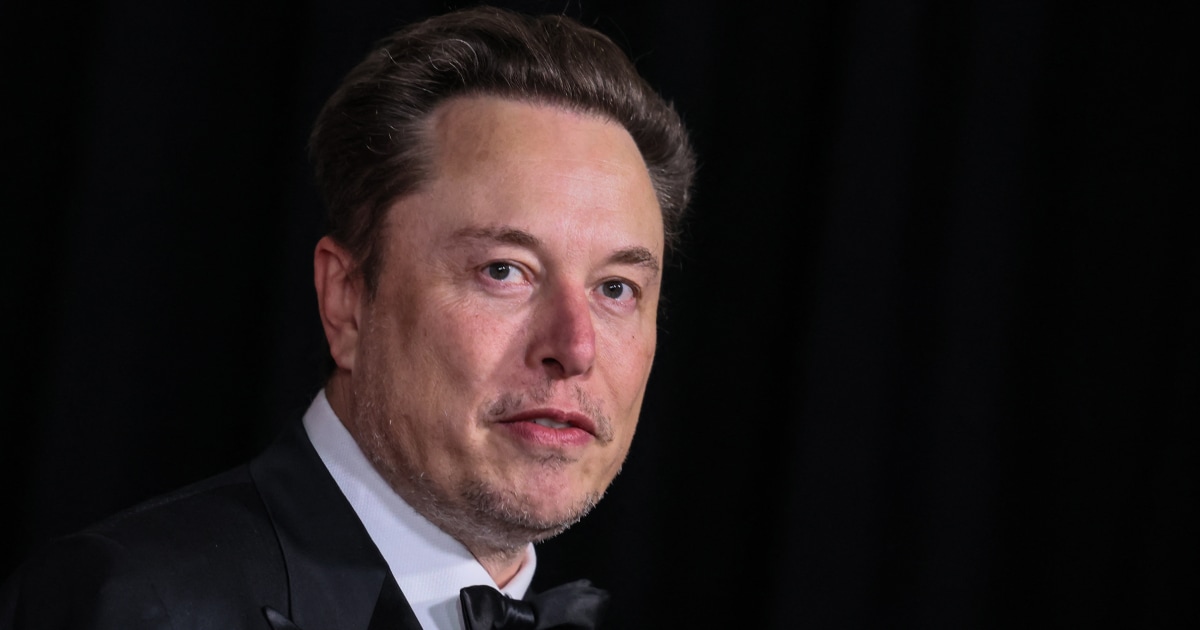Unveiling the $97.4 Billion Bid: Musk and Investors Eye OpenAI’s Future
In a groundbreaking development that has sent shockwaves through the tech industry, a coalition led by the enigmatic entrepreneur Elon Musk has made a staggering $97.4 billion bid for OpenAI. This unprecedented offer not only underscores the escalating competition in the artificial intelligence (AI) arena but also raises essential questions about the future direction of AI technology, ethics, and governance. As stakeholders from multiple sectors watch closely, the implications of this bid could reshape the landscape of AI as we know it.
The Context of the Bid
OpenAI, founded in December 2015, has emerged as a leader in the field of artificial intelligence, known for its groundbreaking innovations such as the GPT series of language models and DALL-E for image generation. The organization has consistently pushed the boundaries of what AI can achieve, making it an attractive target for investors looking to harness the potential of this transformative technology.
Elon Musk, a co-founder of OpenAI, has long been vocal about the need for responsible AI development. His coalition, reportedly composed of various investors and tech leaders, sees the acquisition as a means to steer OpenAI towards a vision that emphasizes ethical AI and long-term safety. Musk’s previous warnings about unchecked AI development resonate deeply in today’s rapidly evolving tech landscape, where the balance between innovation and ethical considerations has become increasingly precarious.
The Motivation Behind the Bid
Several motivating factors underpin this monumental bid:
- Influence and Control: By gaining control of OpenAI, Musk and his coalition aim to guide the organization’s research priorities and ethical frameworks, ensuring that AI technologies are developed with a focus on safety and societal benefit.
- Market Positioning: The bid places Musk’s team in a advantageous position within the highly competitive AI market, potentially allowing them to leverage OpenAI’s existing technologies for various applications across industries.
- Long-term Vision: Musk’s coalition envisions AI as a powerful tool for humanity’s future. Their goal is to harness AI’s capabilities for the greater good, rather than letting it spiral into unregulated advancements that could pose risks.
The Potential Impact on AI Development
The $97.4 billion bid for OpenAI could have far-reaching consequences for the AI development ecosystem:
- Resource Allocation: With significant financial backing, OpenAI could accelerate its research and development efforts, leading to more advanced AI systems that can tackle complex global challenges.
- Shifting Priorities: Should the bid succeed, there may be a shift toward projects that prioritize ethical considerations and responsible AI use, potentially setting new industry standards.
- Increased Competition: The acquisition could spark a wave of mergers and acquisitions in the tech industry as other companies scramble to secure their positions in the rapidly evolving AI landscape.
Ethical Considerations Surrounding the Bid
While the bid is positioned as a step towards responsible AI, it also raises critical ethical questions. The concentration of power in a few hands can lead to biases in AI development and deployment, potentially exacerbating existing societal inequalities. Key ethical considerations include:
- Transparency: Will the coalition prioritize transparency in AI systems and their decision-making processes? Openness is vital for public trust in AI technologies.
- Accountability: Who will be held accountable for the decisions made by AI systems? It is crucial to establish frameworks for accountability to mitigate risks associated with AI misuse.
- Diversity of Perspectives: The dominance of a single coalition may stifle diverse perspectives in AI development. A healthy AI ecosystem requires input from various stakeholders, including ethicists, sociologists, and the broader public.
Industry Reactions
The tech industry has responded with a mixture of excitement and skepticism. Industry experts note that while Musk’s vision for ethical AI is commendable, the implications of such a massive acquisition could lead to monopolistic practices that hinder innovation. Some key reactions include:
- Support from AI Advocates: Advocates for responsible AI development have welcomed the bid, hoping it will lead to more stringent ethical standards across the industry.
- Concerns from Competitors: Competitors view the bid as a potential threat, fearing that Musk’s coalition could stifle competition and innovation in the AI space.
- Investor Caution: Investors are closely monitoring the developments, weighing the prospects of high returns against the risks associated with such a high-stakes acquisition.
The Future of OpenAI and AI Technology
The outcome of this bid will play a crucial role in shaping the future of OpenAI and the broader AI landscape. If successful, it could signal a new era of AI development characterized by a focus on ethical considerations and societal impact. However, should the bid fail, it may lead to a continued fragmentation of the AI sector, with various players pursuing divergent paths.
Regardless of the bid’s outcome, it is clear that the conversation around AI ethics, governance, and societal implications will only intensify. Policymakers, technologists, and the public must engage in ongoing dialogue to ensure that AI serves humanity’s best interests.
Conclusion
Elon Musk’s $97.4 billion bid for OpenAI is not just a financial maneuver; it represents a pivotal moment in the evolution of artificial intelligence. As the tech industry watches closely, the implications of this bid will reverberate far beyond the confines of corporate boardrooms. The future of AI, with its immense potential and inherent risks, hangs in the balance, prompting us to consider how best to navigate this brave new world.
Ultimately, the decisions made today will shape the landscape of AI for generations to come. It is incumbent upon all stakeholders—investors, technologists, ethicists, and the public—to participate in this dialogue, ensuring that as we unveil the future of AI, it aligns with our shared values and aspirations for a better world.
See more Future Tech Daily

